In the heart of every startup’s journey at DMZ lies a secret weapon: our Experts-in-Residence (EiRs).
EiRs are more than just advisors; they act as an extension to our startup teams, working shoulder-to-shoulder with our founders to guide them through the intricacies of scaling their businesses. As experts in their field, they are each handpicked for their comprehensive knowledge and extensive business backgrounds.
We’re thrilled to announce the addition of 14 new EiRs to our esteemed roster. Each brings with them deep industry insights and a rich entrepreneurial background, further enriching our ecosystem and enhancing the support available to our startups.
Meet DMZ’s newest EiRs:
- Mark Angelo: Business Strategy & Healthcare
- Rafael Antiquera: Growth Strategy
- Raja Chakravorti: Business Development
- Steven Delaney: Business Strategy
- Joanna DeBoer: Pitching
- Alnur Ismail: Engineering and Product
- Shilpa Mandhan: Customer Experience
- Corey Peck: Operation and Strategy
- Nathan Prescott: Digital Marketing
- Prad Sekar: Pitch and Storytelling
- Tai Silvey: Business Development, Strategy
- Arabi Siva: Marketing and Go-To-Market
- Shawna Stewart: HR, Operations
- Mansi Vagt: Marketing, Brand Management
Check out the full roster of DMZ EiRs here.
Introducing Mentors
Recognizing that our EiRs provide essential strategic and long-term advice, we’ve seen the need for additional hands-on, tactical guidance to address the multifaceted needs of our startups.
This led us to introduce Mentors, volunteer-based positions, aimed at filling the gaps in our advisory services with their practical, “how-to” expertise, thereby ensuring a broader and more dynamic support system for our founders.
This addition not only enriches our advisory capacity but also provides a flexible pathway for engaging with a diverse array of industry experts eager to guide founders.
Meet DMZ’s newest Mentors:
- Mthabisi Mhlanga: Public Speaking
- Bassem El-Rahimy: Digital Marketing
- Alex Kolodkin: Operation
- Kanchan Kumar: Global Expansion
- Sandeep Todi: Marketing Strategy
- Jason Muloongo: Growth Marketing
- Balaji Gopalan: Digital Healthcare
- Adrian Bulzacki: IP Strategy, Technology Innovation
- Tali Remennik: AI, Retail Tech
- Kumar Erramilli: Product, Engineering
- Brian Deck: Pitch and Storytelling
Levelling up through leadership
As we evolve our mentorship program, we’re also evolving our leadership structure to further this vision. Alex Thibault has excitingly stepped into the position of Chief EiR, steering our strategic direction in mentorship and founder support.
“We need more tech companies that will grow and become the titans of tomorrow. I want to help entrepreneurs as they try to become those titans.”- Alex Thibault, Chief EiR
Alex brings a wealth of experience in tech, capital markets, mobility, and more, offering crucial insights and expertise in M&A, operations, and finance. His success as a tech entrepreneur and investor, with ventures in fast-growing tech companies, supports DMZ’s mission to build the next generation of leading tech startups.
In the Chief EiR role, Alex will focus on enhancing our advisory strategy, nurturing the growth of our EiRs and Mentors, and fostering a culture of collaboration among advisors to increase our impact.
With these new additions and enhancements to our support network, we’re excited about the potential our revamped startup advisory framework holds in providing unparalleled support to our startups.
Ready to scale your startup at DMZ and connect with our industry-leading experts? Apply for our Incubator today.




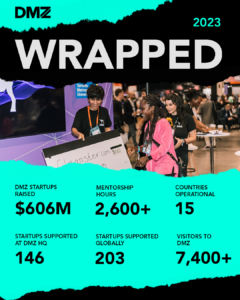





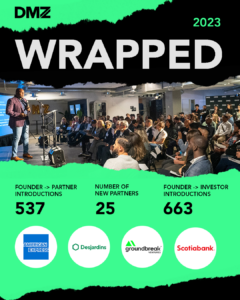
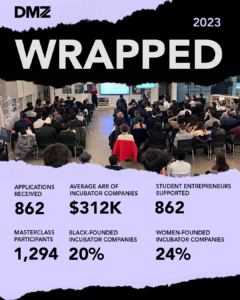










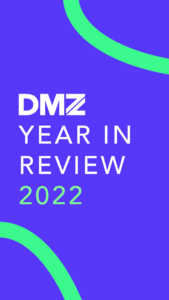

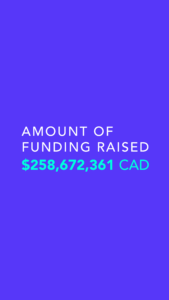
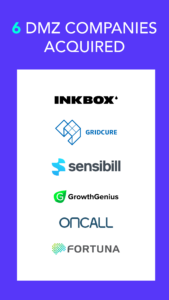




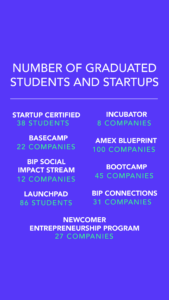
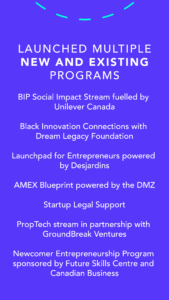


 AN OVERVIEW: BIG TICKET COMMITMENTS
AN OVERVIEW: BIG TICKET COMMITMENTS
